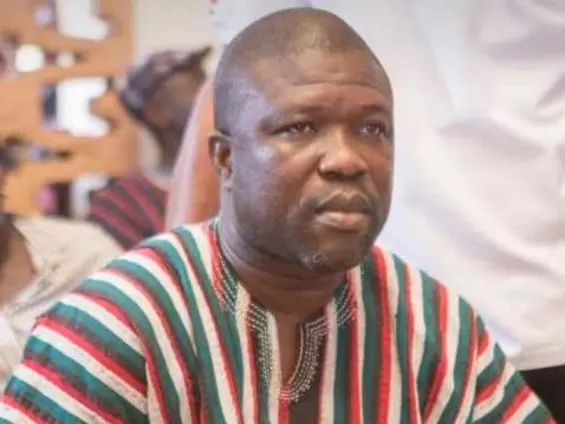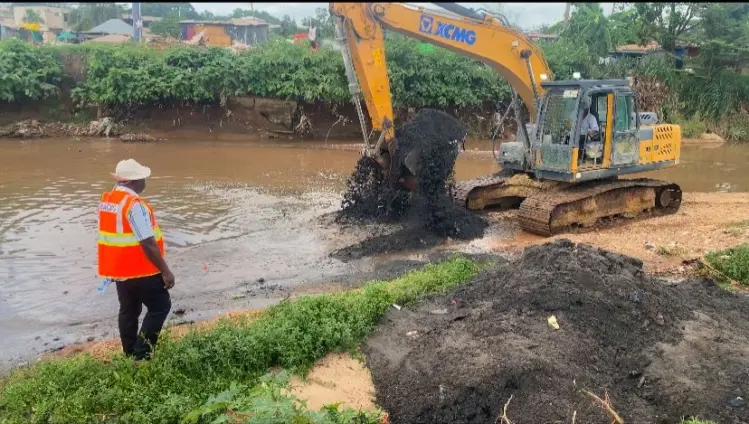In the heart of Ghana, a nation grappling with agricultural challenges that contribute to a staggering $2 billion annual food import bill, a beacon of change is emerging. Low productivity, coupled with inadequate extension services and disjointed market linkages, has long plagued the sector. But now, under the Agriculture for Economic Transformation Agenda (AETA), the government’s Feed Ghana Programme (FGP) is taking root. Leading this charge in the Ahafo region is the Regional Minister, Charity Gardiner, whose recent actions are injecting new life into the region’s agricultural landscape and its contribution to national food security. Her focus? Empowering the Kenyasi Settlement Camp Prisons to become a more productive engine of food production.
Minister Gardiner’s intervention, providing essential resources to the Kenyasi prison, is a localized yet potent example of how Ghana is tackling its broader agricultural deficits. This initiative is designed not only to boost food production within the prison system but also to serve as a model for broader agricultural transformation within the region. The success of the Feed Ghana Programme hinges on such targeted efforts, leveraging regional strengths to address nationwide challenges. The Ahafo region, with its vast arable lands, is particularly well-positioned to contribute significantly to this transformation, setting the stage for a new era of food security and economic growth in Ghana. The goal of the Feed Ghana Programme is to address these issues, modernize agriculture, improve food security, create jobs, reduce food inflation and promote agro-industrial development.
The Feed Ghana Programme (FGP) represents a comprehensive strategy to overhaul Ghana’s agricultural sector. According to Minister Gardiner, the FGP’s key objectives include modernizing agricultural practices, enhancing food security across the nation, creating employment opportunities, reducing the burden of food inflation, and fostering robust agro-industrial development. The program prioritizes commodities such as maize, rice, and cocoa, implementing targeted interventions that promote smart farming practices designed to maximize yields and minimize environmental impact. The Ahafo region, blessed with expansive and fertile lands, is envisioned as a critical food basket for the country, capable of supporting large-scale farming operations that can significantly contribute to national food security.
“We will capitalize on it and make agriculture attractive in the region,” Minister Gardiner stated, underscoring the commitment to harnessing the region’s potential.
This initiative falls under the broader Agriculture for Economic Transformation Agenda (AETA), designed to modernize agriculture and enhance food security across Ghana. The FGP aims to achieve its goals through targeted interventions, promoting smart farming practices for key commodities like maize, rice, and cocoa, which are crucial for both local consumption and export. Job creation, inflation reduction, and agro-industrial development are central to this agenda.
A tangible step towards realizing these goals is the enhancement of food production capabilities at the Kenyasi Settlement Camp Prisons. Charity Gardiner recently presented the prison with a single-cabin Foton truck and two CABRIO tractors, a donation aimed at significantly improving the camp’s agricultural output. The Kenyasi Camp Prison, established in 1992, has a vital role in supplementing state feeding programs through a government of Ghana diverstiture programme, according to CSP Elvis I K Ahadzi. The donation of the truck and tractors aims to bolster the prison’s capacity to produce food, thereby contributing to both the state’s feeding initiatives and the overall food supply chain.
CSP Elvis I K Ahadzi emphasized the camp’s dual role: maintaining the safety and welfare of 250 male inmates while simultaneously contributing to food production. The Kenyasi Camp Prison already produces cash crops and foodstuffs like cocoa, oil palm, and maize in substantial quantities. It also provides inmates with valuable skill training in areas such as masonry, tailoring, and kente weaving, equipping them with tools for reintegration into society. The introduction of modern equipment is expected to significantly increase efficiency in farming operations through mechanization and allow for the potential expansion of cultivated land, leading to higher yields. This will benefit both the prison population and the broader community.
Further strengthening the agricultural framework in the Ahafo region is the government’s introduction of Farmers’ Service Centres. These centers are designed to provide mechanization services and technical support to local farmers, empowering them to adopt more efficient and productive farming practices. According to Minister Gardiner, this strategy is pivotal in boosting agricultural productivity across the region.
“The introduction of Farmers’ Service Centres by the government, aimed at providing mechanisation services and technical support, is one of the strategies set to empower local farmers,” Mrs. Gardiner noted.
These Farmers’ Service Centres offer a range of crucial services, including access to modern farming equipment such as tractors and plows, as well as expert technical support and training programs. By providing these resources, the centers empower local farmers to embrace modern farming technology and improve their practices through expert guidance. This initiative is expected to lead to increased yields, improved crop quality, and enhanced profitability for farmers in the region. The support of this initiative and the donation to the prison helps to improve the Feed Ghana Programme.
In conclusion, the Ahafo Regional Minister’s focused support for the Kenyasi Settlement Camp Prisons, within the framework of the Feed Ghana Programme, represents a crucial step towards enhancing food production and security in the region. By providing essential resources and championing initiatives like the Farmers’ Service Centres, the government is actively empowering local actors to increase agricultural output and contribute to the national food supply. As the Ahafo region capitalizes on its fertile lands and embraces smart farming practices, Ghana moves closer to reducing its reliance on food imports and achieving sustainable economic growth through a revitalized agricultural sector. The Feed Ghana Programme is therefore strategically set to modernize agriculture, enhance food security, create jobs, reduce food inflation, and foster agro-industrial development.
Image Source: MYJOYONLINE





















